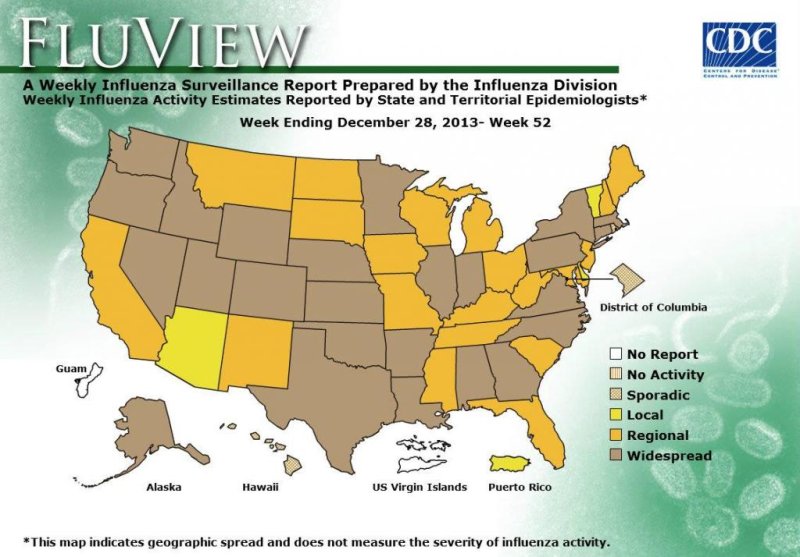According to the CDC's weekly flu report, 25 states have reported widespread flu activity as of the week ending Dec. 28, up from 10 states in the previous week. (Credit:CDC)
The number of states reporting widespread seasonal flu activity had dramatically jumped from 10 states to 25 in the week ending December 28, according to the Centers for Disease Control and Prevention.
Widespread flu activity means that 50 percent of geographic areas in a state are reporting flu activity, and marks the spread of the flu, not its severity.
For the week ending December 21, Alabama, Alaska, Kansas, Louisiana, Massachusetts, New York, Pennsylvania, Texas, Virginia and Wyoming reported widespread activity. Arkansas, Colorado, Connecticut, Georgia, Idaho, Illinois, Indiana, Kansas, Minnesota, Nebraska, Nevada, North Carolina, Oklahoma, Oregon, Utah, and Washington were added to the list the week ending December 28.
Twenty states, mostly in the southeast, experienced a high proportion of outpatient visits to health care providers for flu-like illnesses. This is typical flu season, which peaks during the winter months of January and February.
So far, "it's a typical influenza season, if I can use that word," said Dr. Michael Jhung, a medical officer in the CDC.
The only unique thing this flu season is the high incidence of the H1N1 strain of the flu, which was widespread globally in 2009 and also known as swine flu. While the CDC cannot track the exact number of flu-related deaths, they estimate that from 1976 through 2007, between 3,000 and 49,000 people died of flu-related causes.
[CNN]
[CDC]







